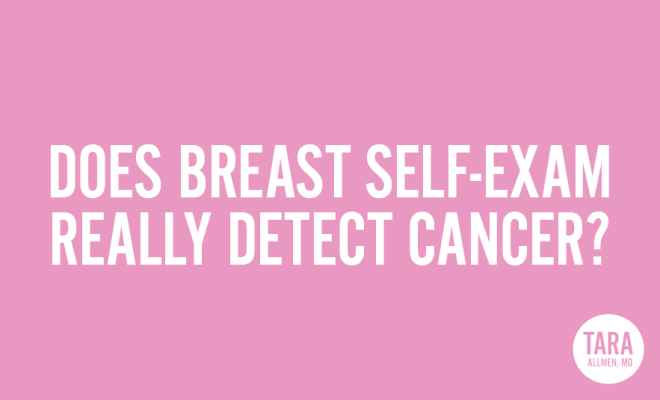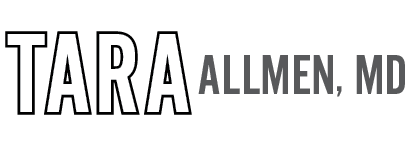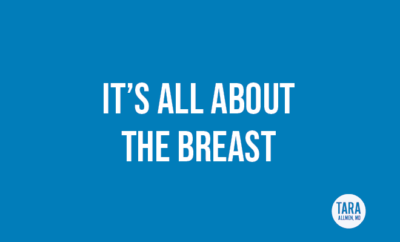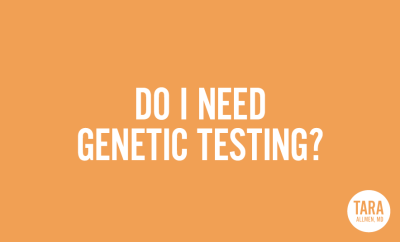
40s
Does Breast Self-Exam Really Detect Cancer?
Breast Cancer Awareness Month is the perfect time to debunk the breast self-examination myth. Are you ready to be shocked? Believe it or not, there is absolutely no scientific evidence that doing your own monthly exam makes any difference whatsoever when it comes to diagnosing breast cancer early and affecting mortality rates later on. I know this sounds completely counterintuitive. When I first learned this information in 1990, I was an OB/GYN resident at the University of San Francisco, California. That was 25 years ago, and we are still teaching women to do breast self-exams. Why?
Despite the fact that breast self-exams do not save lives, they still serve a very important purpose. The point of doing them periodically is to find our own normal. That’s the big secret. We all have lumps and bumps, and the sooner we get comfortable with how they feel, the more informed we will be if anything changes. Remember that breasts do indeed change during our menstrual cycles, when they get even fuller and more tender to the touch. So take my advice and avoid doing your self-exams then. You will just find lots of lumps and bumps that will worry you.
The best time to do your self-exam is right after a menstrual cycle, when your breasts are the least stimulated and, therefore, less lumpy. This is also true for those of you with breast implants, which makes it harder to feel breast tissue. Do your best to feel around the edges of the implant and under your armpit. And do not bother doing self-exams every single month either. In fact, major organizations such as the American Cancer Society regard breast self-examination as something optional to be done occasionally, rather than something essential to be performed monthly. You heard it here first.
The truth of the matter is that by the time you can actually feel a cancerous lump in your own breast, it has been growing there for about 10 years. And that means that it has most likely spread to your lymph nodes and beyond, making it an advanced stage breast cancer. So now is a good time to remind you that the best way to detect early cancer and reduce mortality rates is to get your annual mammogram starting at the age of 50. There is some controversy about whether women should start at the age of 40. I am old school and do indeed recommend starting then. If you happen to be at higher risk for breast cancer, like if you carry the BRCA gene, you will need to start your screening even earlier.
Here comes another secret. I never tell my patients to do regular self- breast examinations. I don’t even do my own. Perhaps it is because women have enough to do, and I do not want to add one more thing that will feel like a homework assignment we are always forgetting. So if you feel like doing your own exam, go right ahead. And if you do not, that is fine too.
The bottom line on self-breast exams is that you should get acquainted with your own breasts once in a while. It will be the start of a beautiful friendship.
Tara Allmen, MD Credentials:
– Board Certified Gynecologist and Nationally Certified Menopause Practitioner
– New York City’s Leading Expert In Menopause
– President, North American Menopause Society Foundation
– Fellow of the American College of Obstetrics and Gynecology
– New York City’s Top Gynecologist, 2015
– Five Star Rating From Doctor’s Choice Awards
– Five Star Rating From HealthGrades









You must be logged in to post a comment Login